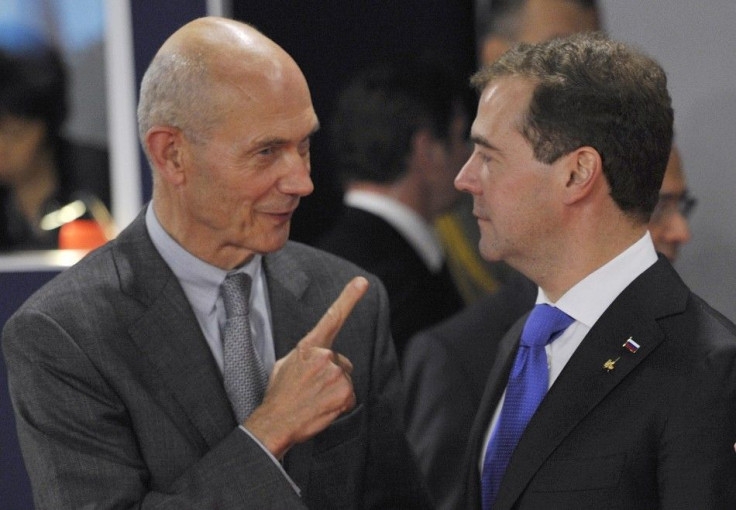Russia WTO Accession: Success Could Spark Belated Economic Boom
ANALYSIS

The Russia World Trade Organization (WTO) accession took a big step forward on Thursday.
The WTO Working Party on Russia’s accession approved the package detailing Russia’s entry into the international organization.
This package will then be forwarded to the WTO at a meeting in December for adoption. Russia itself will have until June 2012 to ratify the package. After that, it will soon become a full-fledged member.
Emerging market countries like China have proven that WTO accession, combined with credible global integration reforms, could pay huge dividends.
Russia fits the bill of such a country.
Since the breakup of the Soviet Union, Russia never really modernized beyond energy and defense. Energy remains the backbone of its economy and exports.
This strategy has succeeded in generating solid economic growth in the past decade. However, it is not sustainable and far from ideal. The Russian economy could be so much more if it became broadly modernized.
The accession into the WTO could give help to Russia in this area. It could also boost exports in its already-efficient commodities sector.
Accession into the WTO is expected to benefit Russia’s steel industry, which would no longer face the European Union’s quota against certain non-WTO members, according to the Moscow Times.
Its fledgling IT sector could also receive a boost. Information Technology is one of the few globally competitive, non-resource sectors Russia has. It is also one of the fastest growing areas of its economy. If Russia continues to gain in this area on the global stage, it would prove a huge boon to its economy.
Generally speaking, tariffs on Russian goods will be reduced across the board for WTO members. This will likely be enormously helpful because Russia conducts 92 percent of its trade with WTO members, according to Maxim Medvedkov, Russia’s chief WTO negotiator, reported Moscow Times.
The more important benefit of WTO accession, however, may actually be the accession itself and the requirements associated with it.
On the international business and investment stage, WTO accession is a sign of legitimacy.
Being the only major economy to not be in the WTO (and not complying with its internationally accepted rules) has been a black mark on Russia, especially given the country’s high level of corruption and history of strong-arming international investors.
This lack of legitimacy has severely limited foreign investment in Russia, which is sorely needed for the country to modernize.
In order to remove this black mark, Russia needs to comply with WTO standards; it will need to give up some control in trade and other areas.
For example, Russia’s WTO package stipulates the loosening of restrictions on equity ownership of banks and distribution companies.
While this seems like a sacrifice, it will also bring in benefits in the form of increased foreign investments and technology transfers.
Another sacrifice Russia has to make is to lower tariffs and make fewer restrictions on foreign imports across the board.
In the short term, this will undoubtedly be painful for some Russian businesses.
Domestic sectors that will be hit particularly hard by competition from more efficient foreign players include agriculture and automobiles, according to RIA Novosti.
Furthermore, about 460 Russian monotowns, which “rely on one factory or industry for jobs and public utilities,” could be put in jeopardy, according to New York Times columnist Dominic Fean.
However, in the long run, these pains are worth it.
There is ample evidence that (fair) foreign competition makes protected domestic sectors more efficient. If foreign competition completely destroys that sector, perhaps it should never have existed in the first place. That is, the country perhaps never had any comparative advantage in that area.
Moreover, cheap prices for intermediary goods and services could actually make efficient Russian sectors even more competitive globally.
Lastly, Russian consumers will benefit from cheaper foreign goods.
Since the breakup of the Soviet Union, the Russian economy has persistently performed below its true potential. Despite its abundant natural resources, Russia’s GDP per capita is only $16,000, placing it at 71 out of 227 countries, according to the CIA World Factbook.
Russia’s WTO accession in 2012 is a crucial opportunity for the country. If the Russian government handles the accession right, it could steer its economy to new heights. If it handles the accession poorly, its economy will remain hostage to the whims of the global commodities market.
Follow Hao Li on Twitter @hao_li_ibt
© Copyright IBTimes 2024. All rights reserved.





















